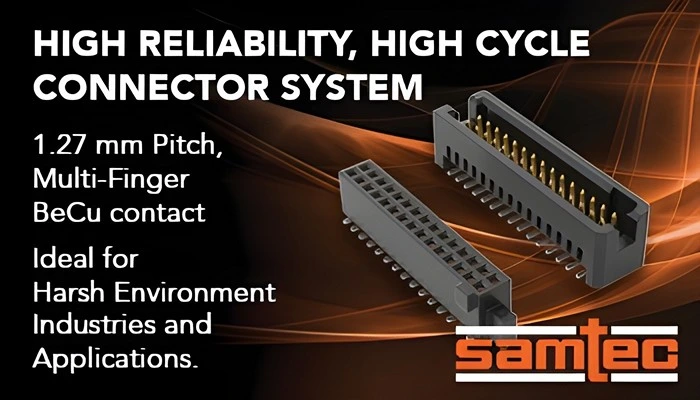Nordic Semiconductor has announced the volume availability of the nPM2100, a highly efficient Power Management IC (PMIC) developed to extend the battery life of devices powered by primary (non-rechargeable) batteries. Now in mass production, the nPM2100 is available in a compact 1.9 x 1.9 mm WLCSP, with a 4 x 4 mm QFN package to follow. Designed for use alongside Nordic’s low-power wireless SoCs or any microcontroller where efficiency and footprint are critical, the nPM2100 offers advanced power management features in an ultra-small form factor. Typical target applications include wireless mice, keyboards, asset tracking tags, sports wearables, and medical devices where device longevity and minimal size are key design priorities. “The launch of the nPM2100 PMIC for volume production marks a significant milestone for Nordic Semiconductor in enhancing the efficiency and longevity of primary battery applications,” said Kjetil Holstad, EVP of Strategy and PMIC Business Unit at Nordic Semiconductor. “This release facilitates a smooth transition to commercial production for early adopter customers already designing with this innovative solution.”
Boosting Efficiency in Primary Battery Systems
The nPM2100 is specifically engineered to maximise energy extraction from primary cells, allowing designers to either extend time between replacements or use smaller batteries without compromising product life. Its integrated boost regulator offers up to 95% power conversion efficiency, ensuring reliable performance even as battery voltage drops. This opens the door for lighter, more compact products in markets where recharging isn't practical and frequent battery swaps are undesirable.
Low Power Features for Intermittent Operation
In addition to high conversion efficiency, the PMIC includes ship and hibernate modes that enable extremely low current draw, ideal for systems that operate in bursts, such as Bluetooth® LE advertising devices. These features are critical in applications where extending standby life is as important as runtime. The device is compatible with a broad range of primary battery chemistries and configurations, offering flexibility across many types of designs.
Fuel Gauging Done Right
One of the standout features of the nPM2100 is its model-based fuel gauging. While many PMICs rely on crude voltage-based lookup tables, Nordic’s approach leverages a more accurate algorithm that runs on the host MCU. By measuring voltage and temperature and feeding these into a mathematical model of the battery, the system delivers much more accurate state-of-charge estimations, allowing developers and users to make better decisions based on remaining energy.
Full SDK Support for Faster Development
To accelerate time to market, the nPM2100 is supported by the nRF Connect SDK and nRF Connect for Desktop, including a GUI for configuration and evaluation. The PMIC is also compatible with third-party microcontrollers, even those without radios, making it accessible to a wide range of developers beyond Nordic’s wireless ecosystem.
A Growing Power Management Portfolio
The nPM2100 joins Nordic’s expanding power management lineup, which includes the nPM1100 for battery charging and delivery, the nPM1300 with advanced integrated features, and the nPM6001 for multi-rail applications. Each device is designed to offer flexible, compact solutions for energy-conscious designs. For designers working on primary battery-powered systems, the nPM2100 provides a compelling combination of performance, integration, and efficiency in one of the smallest PMIC footprints on the market. Read the original press release here.



